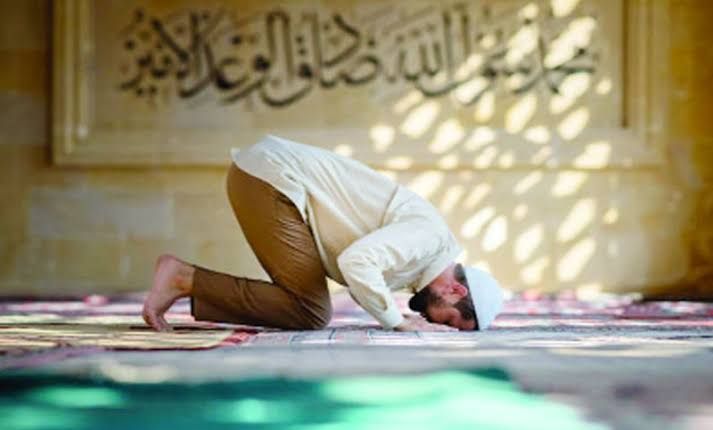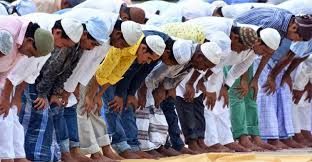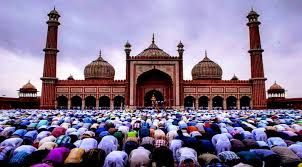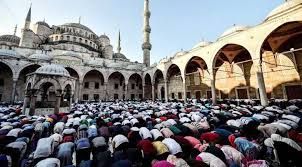
Bismillahir Rahmanir Rahim.
Assalamu Alaikum Wa Rahmatullahi Wabarkatuhu
Dear friends, I hope you are very well by the grace of God and are healthy. I am also very well and healthy by the grace of God.Prayer Deters Indecent Acts

source
Prayer turns people away from all acts of indecency,
Prayer, a practice deeply rooted in various religious and spiritual traditions, is often regarded as a source of moral guidance and a means to cultivate virtuous behavior. The act of prayer is believed by many to have a transformative impact on individuals, influencing their moral compass and steering them away from acts of indecency. While the connection between prayer and ethical conduct is subjective and varies across belief systems, numerous people find solace, purpose, and moral direction through prayer.

source
At its core, prayer is a form of communication with a higher power, whether it be a deity, the universe, or a divine force. Many religions emphasize the importance of aligning one's actions with a set of moral prin ciples, and prayer serves as a conduit for seeking guidance in upholding these values. The act of dedicating time to reflect, express gratitude, seek forgiveness, or seek moral strength through prayer can foster a sense of accountability and mindfulness.

source

source
One way in which prayer can deter individuals from indecent acts is by instilling a sense of responsibility and connection to a higher moral order. The act of supplication, where individuals humbly request guidance or assistance from a divine entity, often includes an acknowledgment of one's shortcomings. This self-awareness can contribute to a heightened sense of morality, as individuals strive to align their behavior with the values espoused in their religious teachings.

source
Moreover, prayer frequently involves reflection on ethical teachings, scriptures, or sacred texts that provide a moral framework. These teachings often contain guidelines for virtuous living, emphasizing compassion, empathy, and justice. Regular exposure to these moral precepts during prayer can reinforce ethical principles, acting as a constant reminder of the values that should guide one's actions. This continuous reinforcement can create a subconscious inclination towards decency and discourage behaviors considered morally reprehensible.
In addition to providing moral guidance, prayer can be a source of emotional support and stress relief. Many individuals turn to prayer in times of hardship, seeking solace and comfort in the face of challenges. The emotional stability gained through prayer can contribute to better decision-making, reducing the likelihood of succumbing to impulsive or indecent actions driven by frustration, anger, or despair.

source
Furthermore, communal prayer practices often foster a sense of shared values and accountability within religious communities. When individuals come together to pray, they reinforce a collective commitment to ethical standards, creating a supportive environment that discourages acts of indecency. The social aspect of prayer can enhance the sense of belonging and interconnectedness, motivating individuals to uphold moral values not only for personal growth but also for the well-being of the community.

source
While the impact of prayer on moral behavior is evident for many, it's essential to acknowledge that the relationship between prayer and decency is complex and multifaceted. The effectiveness of prayer in deterring indecent acts can vary based on an individual's sincerity, the depth of their religious convictions, and the interpretation of ethical teachings within their faith tradition. Additionally, cultural and personal factors play a significant role in shaping the influence of prayer on behavior.
It's important to note that prayer alone may not be a panacea for eradicating indecency. Ethical conduct is influenced by a combination of factors, including personal values, societal norms, education, and environmental influences. While prayer can be a powerful motivator for moral behavior, it should ideally be complemented by a holistic approach that includes education, dialogue, and societal structures that promote ethical standards.
Prayer has the potential to turn individuals away from acts of indecency by providing moral guidance, fostering self-awareness, and creating a supportive community. The act of prayer serves as a conduit for individuals to connect with their values, seek guidance, and reinforce a commitment to virtuous living. While acknowledging the complexities of this relationship and the importance of a multifaceted approach to morality, it is evident that for many, prayer plays a significant role in shaping ethical behavior and promoting decency in their lives.